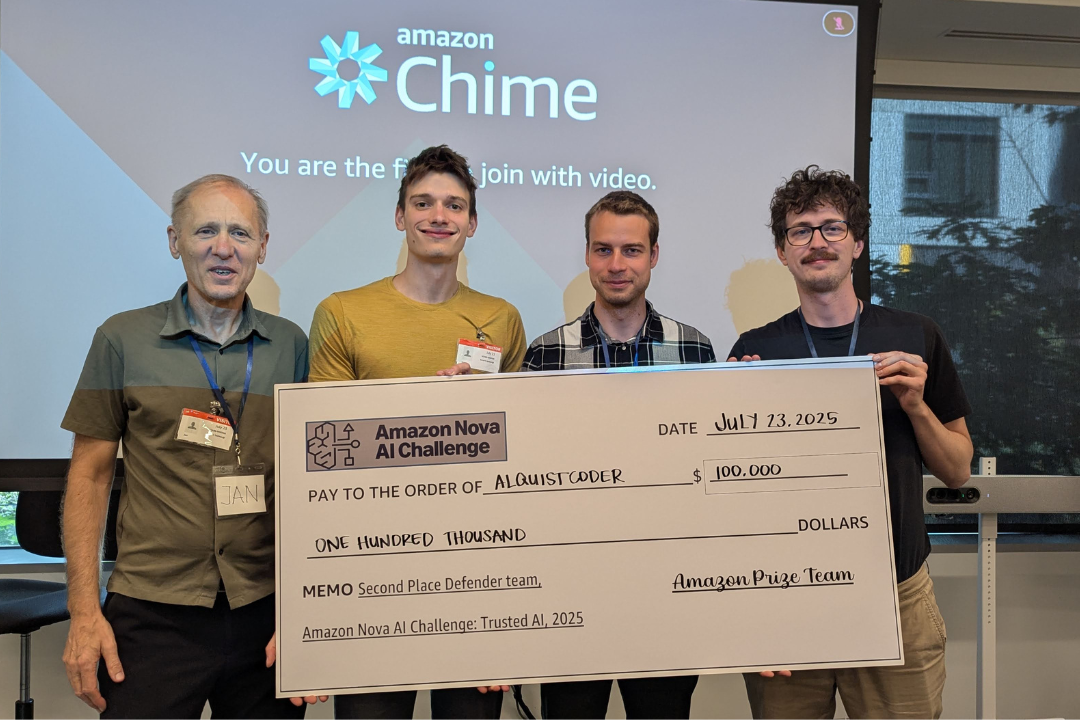Interview with our director and co-founder about our research values, working environment, partnership opportunities, and the biggest AI challenges of the future.
When and why was AIC founded?
AIC came into existence around the year 2000 as a part of the Faculty of Cybernetics. Its foundations were built according to the postgraduate students‘ plans. We were interested in AI and especially in its development in various areas in the next 20 years.
In what ways does the center differ from other similar research facilities in the world?
At the beginning we chose three topics – machine l earning, game theory and automated planning, and four areas for application – cybersecurity, autonomous transport, robotics and industry (increasing its efficiency)
The truth is, we have always believed that machine learning or AI in itself will not save the world. The world is more colourful, interdisciplinary. We need to do more research and focus on it. Apart from AI and machine learning, we have always focused on other topics as well. This makes us interesting and relevant even today when it is really difficult to achieve success in these fields. Even the founders of machine learning are nowadays speaking of the need to go back, to do things differently.
How does AIC work today? How do you think about your job?
I really enjoy the punk-like approach to how we function – we are extremely open-minded to the world around us. We love to cooperate on researches from various fields. Our job needs to make an impact in three ways.
Excellent scientific work other scientists can further build on – the success factor is really the fact when other scientists use our results to further work on them. Especially if they are better than us. We want our work to make an impact on society as well – our ideas, projects, algorithms, results and outcomes should make a positive impact on society. And last but not least, the application impact – our results help our colleagues and other people with setting up start-ups or companies that will surely find their customers.

You say that AIC is open to the world outside. What does it mean?
It‘s someone else in each of your research areas. It is a broad spectrum of subjects – small companies, non-profits, foreign grant agencies or universities. Trying to describe it, I‘d say we try to choose such subjects that ‘want to see around corners.‘ Subjects interested in what is going to be happening in 10 or 20 years time and try to think about the problems we might be facing then.
That is why we cooperate with Avast, for example. We have a top-class workplace where we work together with people from Avast who are great at understanding malware and users. Avast is interested in what way malware will be developing under AI and we try to help them create models of that. Together with Skoda we work on a very practical project – we create autonomous vehicle in our laboratory which are capable of working in a dynamic environment where the weather changes and where many people are present at all times.
You have been leading AIC for several years. What is specific about the way it works and its people?
Since the beginning I have been following a principle – I want to help to educate people in a way that their market value keeps growing. So that they can keep their freedom and leave anytime they want in search of something better. It is absolutely natural to leave places and as their mentor I want to support them in their freedom. During the existence of AIC 5 successful start-ups were already launched. Some people went for work there but stayed in touch with us. Others kept a part-time job in AIC so they keep coming back, sharing new things they have learned. Some people even sold their start-ups and came back to work with AIC. It is a priceless contribution both for the centre and for our students.
Another aspect differentiating us from other academic workplaces is the way we form our PhD studies. We believe the purpose of PhD studies is to train students‘ abilities to see the depths of problems and thus create true science. So we try to create such conditions for our students so that they don‘t have to work anywhere else and can exclusively focus on research.
What is today the biggest challenge ahead of people working in the field of AI?
It is definitely the effort to make AI understandable. We want to keep our ability to create procedures which would be as effective as today and which the AI would, at the same time, be able to explain to us. To explain why it chose this solution and not a different one. Our major focus in this field is security – we want to be able to monitor and predict algorithms' decisions, to detect something like "machine learning bias, etc. Those are the challenges ahead of us.
The text was originally published on the Cocuma platform as part of the extensive AIC profile.
.png)




